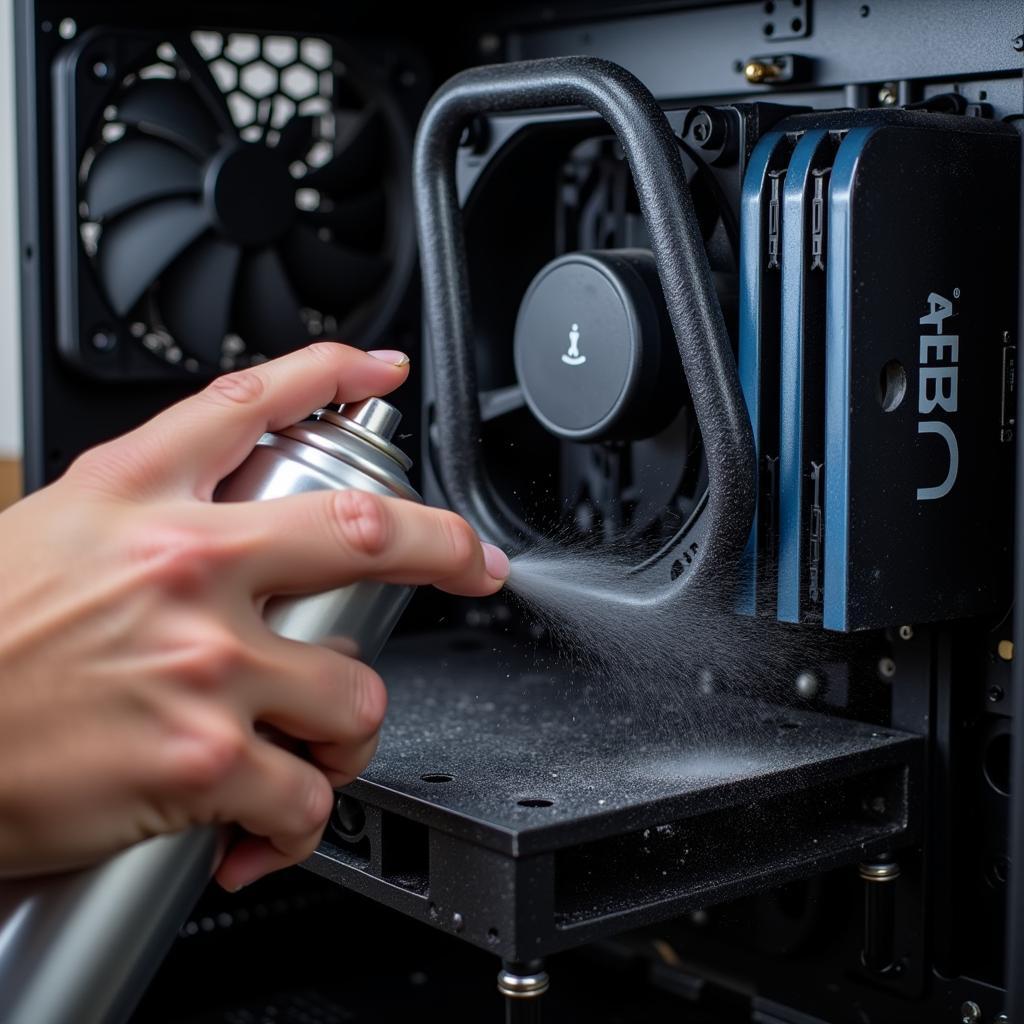The whirring of your computer fan is a familiar sound, especially when it’s working hard. But what if that whirring turns into a loud, annoying roar? This can be a sign of trouble and a cause for concern. In this guide, we’ll cover everything you need to know about what to do when your computer fan is loud, from diagnosing the cause to finding solutions.
Understanding the Causes of a Loud Computer Fan
Your computer’s fans play a crucial role in keeping its internal components cool. When these fans start running louder than usual, it often indicates a problem. Here are the most common causes:
**Dust Accumulation**
Dust is the most common culprit behind a noisy computer fan. Over time, dust can build up on fan blades and the internal components, hindering airflow and forcing the fan to work harder.
**Failing Fan Bearings**
Fan bearings are responsible for smooth rotation. When these bearings wear down or become damaged, the fan can produce a rattling or grinding noise.
**Overheating Components**
If a component in your computer is overheating, the fan will spin faster to cool it down. This can lead to increased noise levels.
**Software Issues**
Sometimes, software problems can cause the fan to run at high speed unnecessarily. For instance, a faulty driver or a program that’s using too much resources can trigger excessive fan activity.
**Hardware Problems**
In some cases, a failing hardware component, such as a malfunctioning hard drive or a faulty power supply, can trigger increased fan speeds.
How to Fix a Loud Computer Fan
Now that you understand the potential causes of a noisy computer fan, let’s explore the solutions:
**1. Clean Your Computer**
The first step is to clean your computer thoroughly. Here’s how:
- **Turn off your computer and unplug it.**
- **Open the case and use a can of compressed air to blow out any dust.**
- **Use a soft brush to gently remove dust from fan blades and other components.**
- **Be careful not to damage any components during the cleaning process.**
Expert Tip: “Regular cleaning is crucial to prevent dust buildup and maintain optimal cooling performance,” says Mark Peterson, a seasoned IT technician.
{width=1024 height=1024}
**2. Check Your Fan Bearings**
If your fan is making a rattling or grinding noise, the bearings might be failing. You can try lubricating the bearings with a drop of oil, but this is a temporary fix.
Expert Tip: “If you’re not comfortable working with computer hardware, it’s best to consult a professional for fan bearing replacement,” advises Dr. Sarah Thompson, a computer engineering expert.
**3. Monitor Temperatures**
Overheating components can cause excessive fan noise. Use a monitoring tool like HWMonitor to check your CPU, GPU, and other components’ temperatures. If any component is running too hot, investigate the cause and address it.
**4. Update Drivers**
Outdated or faulty drivers can cause software-related fan issues. Make sure you’re running the latest drivers for your motherboard, graphics card, and other components.
**5. Check for Software Conflicts**
Certain programs can trigger excessive fan activity. Try closing unnecessary programs and monitoring your fan speed to see if it reduces noise levels.
**6. Replace the Fan**
If cleaning, lubricating, and software troubleshooting don’t resolve the issue, it might be time to replace the faulty fan. This can be a straightforward process, but if you’re not comfortable working with computer hardware, consider consulting a professional.
**Troubleshooting Tips**
- **Listen carefully to the noise:** The sound of a loud fan can often provide clues about the cause.
- **Monitor your computer’s temperature:** Check for overheating components.
- **Check your system’s power consumption:** A faulty power supply can trigger excessive fan activity.
- **Consider reapplying thermal paste to your CPU:** Over time, thermal paste can dry out and lose its effectiveness, leading to overheating.
**FAQ**
Q: How often should I clean my computer?
A: It’s recommended to clean your computer every 3-6 months to prevent dust buildup.
Q: What if my fan continues to run loud after cleaning and troubleshooting?
A: You might have a faulty fan or other hardware issue. Consider consulting a professional.
Q: Can I use a vacuum cleaner to clean my computer?
A: It’s not recommended as the static electricity from a vacuum cleaner can damage sensitive components. Use compressed air instead.
Q: Is it normal for my computer fan to be loud when gaming?
A: It’s common for fans to run louder during demanding tasks like gaming, as the components are working harder and generating more heat. However, if the noise is excessive or persistent, investigate the cause.
Q: How can I reduce the overall noise from my computer?
A: Consider a few strategies:
- **Choose a case with good airflow:** A case with good airflow can help minimize noise by preventing excessive heat buildup.
- **Use fan control software:** Some software programs allow you to adjust fan speeds manually, reducing noise levels during less demanding tasks.
- **Consider using liquid cooling:** Liquid cooling can help reduce noise levels by eliminating the need for loud fans.
{width=1024 height=1024}
Remember, a noisy computer fan can be a sign of a serious problem. If you’re not comfortable troubleshooting or repairing your computer, it’s always best to consult a professional.



